On March 27, Congress passed the Coronavirus Aid, Relief, and Economic Security Act (CARES), which intends to prevent workers from losing their jobs and small businesses from going under due to economic loss. The $2 trillion stimulus package is one of the largest in U.S. history, and it includes direct payments to Americans and billions of dollars dedicated to small business loans, unemployment insurance benefits, and loans for distressed companies.
DIRECT PAYMENTS
The CARES Act offers financial relief to many individuals, in the form of direct payments from the federal government.
- Most U.S. adults who earn less than $75,000 will receive $1,200
- Most U.S. children will receive $500
- Married couples earning less than $150,000 will receive $2,400 combined
- Individuals earning more that $75,000 and couples earning more than $150,000 may receive smaller checks
- Individuals earning more than $99,000 and couples earning more than $198,000 are ineligible for the direct payments
SBA DEBT RELIEF PROGRAM
Section 7(a) of the Small Business Act will be modified to permit eligible small businesses to seek up to $10 million in loans to be used for payroll support, salaries, mortgage, rent and utility payments, insurance premiums, and other debt obligations.
WHO QUALIFIES?
An applicant must either:
- Have an SBA 7(a) loan, or microloan (Paycheck Protection and SBA Economic Injury Loan Program participants are not eligible – but payments are already deferred under these loans)
- Have applied for and received an SBA 7(a) loan, 504 loan, or microloan within six months of the enactment of the CARES Act
SBA ECONOMIC INJURY DISASTER LOAN PROGRAM
Economic Injury Disaster Loans (EIDL) are available to qualifying businesses or private non-profits that have sustained economic injury. Such loans may be used as working capital for businesses to pay payroll, accounts payable, fixed debts, and other business expenses that cannot be paid during the Covid-19 pandemic. Under the CARES Act, the SBA EIDL Program has been allocated additional money to assist qualifying small businesses with favorable loan terms.
WHO QUALIFIES?
Businesses must meet the following criteria:
- A business must be “without any credit available elsewhere”
- A business that has suffered a “substantial economic injury, which renders it unable to meet its obligations and to pay its ordinary and necessary operating expenses”
- A business must be located in a state or territory where the governor has requested EIDL assistance from the SBA
EMERGENCY GRANT
The CARES Act also creates a new emergency grant of $10,000 for small businesses that apply for an SBA EIDL. The EIDL grant does not need to be repaid even if the applicant is denied an EIDL.
SBA PAYCHECK PROTECTION PROGRAM
The Paycheck Protection Program (PPP) is a new SBA program under the CARES Act that allows certain businesses to obtain a loan for specific expenses during a time frame. The program provides 8 weeks of cash-flow assistance through 100% federally guaranteed loans to small employers who maintain their payroll during this emergency. Borrowed funds can be used to pay many expenses, including rent, utilities, mortgages, payroll costs, and group health insurance benefit premiums, tax free, with several limitations. The program is retroactive to February 15, 2020 to help bring workers who may have already been laid off back onto payrolls.
WHO QUALIFIFES?
The PPP is aimed at small businesses with 500 or fewer employees, but the law relaxes this requirement for the heavily impacted hospitality industry. There are also particular exceptions for affiliates, depending on corporate ownership structure. In addition to size requirements, businesses must have “had employees for whom the borrower paid salaries and payroll taxes” and have been in operation on February 15, 2020.
Borrowers applying for loans are required to certify that:
- Economic uncertainty “makes necessary the loan request to support the ongoing operations” of business
- The funds will be used for worker retention, maintaining payroll, or making mortgage interest payments, rent, payroll, and utility payments
- There are no duplicative applications pending under the program
Businesses should first seek counsel regarding the specific details of their situation before applying for a PPP loan.
GOVERNMENT CONTRACTORS
Fluet has published a separate blog explaining provisions of the CARES Act that are specific to government contractors. Read “What Government Contractors Should Know About the CARES Act”.
QUESTIONS?
The above details are meant to serve only as guidance on the CARES Act, and it is not comprehensive of all situations. We encourage readers to see the full bill and/or reach out to your attorney with any questions or concerns.
Follow our blog for updates as our team continues to analyze new legislation and monitor developments.
Note: The information contained on this page does not constitute legal advice, and reading the information does not automatically start an attorney-client relationship. The details are meant to serve as guidance on the new law, but it is not comprehensive of all situations.



